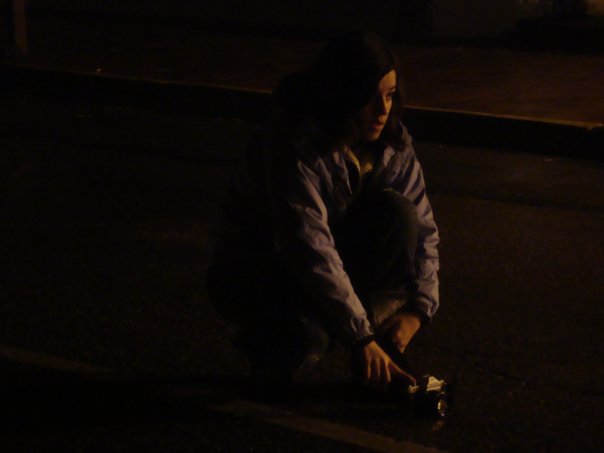I'm friends with two of them.
In comparison, nearly 7 million FB users are fans of Lady Gaga.
I am one of them.
Digital media such as Facebook provide unbelievable outlets for religion to further the word of God. On TV, Televangelists such as Joel Osteen can reach straight into the comfort of your living room to provide a morning sermon for those unwilling or unable to make the journey to church. It also reaches out to those too far to attend one of his actual services at his megachurch, Lakewood Church, in Houston, Texas. There are even churches on the web, such as the First Church of Cyberspace, founded by Rev. Charles Henderson, who is also the Christian authority for the information know-all About.com. One of my favorite religion-meets-technology examples is the availability of Youtube videos, such as this energetic sermon from Louie Giglio, founder of the Passion Movement, aimed at inspiring college students to become active in religion.
But it seems to me that despite this reaching out of religion, society is becoming perpetually more disinterested in the question of faith. It's happening across generations, but it seems to be a particular problem for Generation Y. We have so many things to distract our lives away from God, as well as pop culture that frequently attacks religion and the followers of religion.
~ : ~
A recent study, OMG! How Generation Y is Redefining Faith in the iPod Era, looked at 1,300 young adults ages 18-25 from all types of faiths and communities. They wanted to examine three points of the faith of Gen Y:
- Religious identity - how do they find it?
- Religious practices - what/where/how do they practice?
- Civic participation - is there a relationship between religion and service?
What they found was that young adults respond to religion much as they do technology: it needs to tailor itself to the lives of individuals. It should be personal and informal. They don't attend church as frequently as their parents and grandparents for the same reason they don't want to sit through a two-hour lecture with 500 other students - most professors and pastors have difficulty reaching their entire audience on a personal level.
This generation also has generally a much more progressive and accepting view of the world around them. Issues such as gay marriage and immigration are treated with a more liberal view. Gen Y is also willing to reach out to other religions for help in finding their own faiths. While previous generations have shied away from asking the hard questions about religion, this generation embraces them.
So has technology hurt the religious health of Generation Y? Not really. For us, it is giving us the resources to research and learn about religion in a way that works for us. However, it will affect moreso the religious institutions that are slowly losing their youngest members.
This past March, Pope Benedict XVI urged priests of the Catholic church to make use of digital media, in order to keep young adults engaged and involved in organized religion. Maybe that can revitalize faith in the Catholic church. Maybe that can bring youth back to churches, temples, and mosques alike.
And maybe the Pope should do the same, so he can have more than 114,000 Facebook fans.
